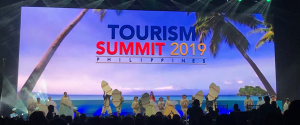
The Bangko Sentral ng Pilipinas (BSP) conducted a briefing on the amendments to its Manual of Regulations on Foreign Exchange (FX) Transactions last 06 August 2019 at the BSP Assembly Hall in Manila.
Deputy Director Jodeth Niña Yeung discussed in details the recent amendments to BSP’s Manual of FX Regulations. Highlighting that these new policy reforms made the country’s FX regulatory framework further liberalized. In fact, according to Chinn-Ito Financial Index (2016), the Philippines’ FX flow openness index remains higher compared to ASEAN neighbors: Malaysia, Indonesia, Thailand and Vietnam. Because of BSP’s facilitative and more liberalized regulations, FX transactions are now more streamlined and simplified.
The amended FX regulations include the following major reforms:
- Lifting of prior BSP approval requirement for purely private sector FX loans. Henceforth, companies need only to register.
- Replacement of a positive list to a general policy requirement for loan purposes that can be funded with proceeds of foreign currency loans. FX transactions need only be legitimate, not contrary to laws, regulations, public order, public safety, or public policy.
- Lifting of BSP registration for certain short-term private sector loans, provided these are duly reported to BSP.
- Lifting of the USD 60,000.00 Daily limit on FX sale by depository banks for the balance of peso deposit accounts of non-residents.
- Migration to electronic submission of supporting documents, from previous hard copy requirement.
- Broadened coverage of inward investment transactions from previous two (2) categories: foreign direct investments and portfolio investments, to three (3) new categories, namely: instruments issued by residents, non-residents, and other forms of investments.
- Expansion of the list of banks allowed to register investments on behalf of BSP.
- Provision of a grace period of one (1) year from effectivity of the implementing Circular to file applications for registration of investments, regardless of the date of funding.
BSP underscores that these reforms are significant leaps that will allow foreign investors, public and private entities, and overseas Filipinos to have more flexibility in managing their foreign currency transactions and investments.
However, BSP despite its continuing efforts to further liberalize FX regulations, the banks may still adopt internal policies and are expected to exercise due diligence in compliance with these amendments. –EPV

 The Department of Tourism (DOT) in collaboration with Go Negosyo and other partners like the ASEAN Business Advisory Council, Department of Foreign Affairs, Tourism Board of the Philippines, Philippine Chamber of Commerce and Industry and the Filipino Chinese Chamber of Commerce and Industry , conducted the country’s First National Tourism Summit last 02 May 2019 held at the World Trade Center in Pasay City.
The Department of Tourism (DOT) in collaboration with Go Negosyo and other partners like the ASEAN Business Advisory Council, Department of Foreign Affairs, Tourism Board of the Philippines, Philippine Chamber of Commerce and Industry and the Filipino Chinese Chamber of Commerce and Industry , conducted the country’s First National Tourism Summit last 02 May 2019 held at the World Trade Center in Pasay City.


 As the fourth industrial revolution or Industry 4.0 gain momentum, the National Wages and Productivity Commission (NWPC), an attached agency of the Department of Labor and Employment (DOLE), focused its 2018 National Productivity Conference on people-centric technologies & innovation for MSMEs. DOLE Undersecretary Ciriaco Lagunsad, III pointed out that the on-going concern on inflation can also be addressed by improving the productivity of producers which will influence prices. As such, he emphasized the need to embrace new technologies, but put people in control of technology.
As the fourth industrial revolution or Industry 4.0 gain momentum, the National Wages and Productivity Commission (NWPC), an attached agency of the Department of Labor and Employment (DOLE), focused its 2018 National Productivity Conference on people-centric technologies & innovation for MSMEs. DOLE Undersecretary Ciriaco Lagunsad, III pointed out that the on-going concern on inflation can also be addressed by improving the productivity of producers which will influence prices. As such, he emphasized the need to embrace new technologies, but put people in control of technology.